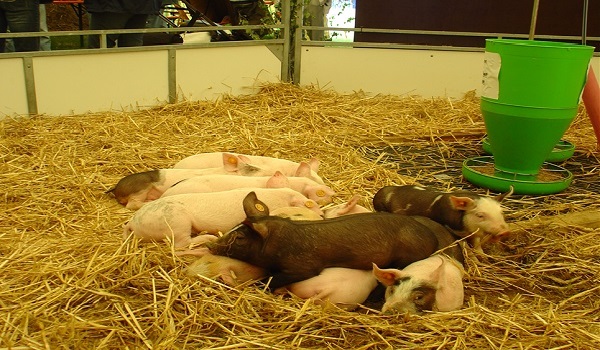
On Wednesday 18 September 2024, Luxembourg's Ministry of Agriculture, Food and Viticulture and the Ministry of the Environment, Climate and Biodiversity issued a joint press release on the subject of African swine fever (ASF).
The ministries noted that, following the spread of the ASF virus in wild boars and domestic pigs in Germany (more precisely in Hesse, Rhineland-Palatinate and Baden-Württemberg), the risk of contamination of Luxembourg's wild boar population - and even its national pig herd - is increasing.
They explained that the ASF virus affects wild boars and domestic pigs but does not pose any risk to humans, even if contaminated meat or meat products are consumed. The virus spreads directly, through contact between animals, and indirectly, via food waste containing pork. It is important then that such food waste be eliminated in a way that avoids contact with a wild boar or a pig.
Currently, no vaccine is available against this disease. Consequently, the emphasis is on prevention and awareness-raising. The ministries thus asked all stakeholders to exercise increased vigilance and strengthen surveillance to limit as much as possible any possible spread of the disease among wild boars, as well as the risk of introducing the virus into the Luxembourg pig herd, which could have "significant" economic consequences for the sector.
To anticipate a possible outbreak of swine fever in Luxembourg, the Minister of Agriculture, Food and Viticulture, Martine Hansen, and the Minister of the Environment, Climate and Biodiversity, Serge Wilmes, have convened the "swine fever" taskforce. In consultation with all stakeholders (Luxembourg Veterinary and Food Administration, High Commission for National Protection, Nature and Forest Agency, National Roads Administration, veterinary practitioners, Saint-Hubert Federation of Hunters of the Grand Duchy of Luxembourg, and the pig sector), they defined the prevention and control measures to be implemented in the event of detection of a case of ASF in Luxembourg. In order to rapidly reduce the wild boar population, the taskforce decided to reintroduce a shooting bonus for wild boars for a six-month period. Additional measures concerning the law on hunting, in particular the adaptation of shooting hours, are in the pipeline.
The ministries assured that the national authorities are "closely monitoring" the development of ASF and are "in constant contact" with the competent authorities of neighbouring countries (Germany, Belgium and France) in order to coordinate actions aimed at preventing a possible spread of the virus.








